I arrive in Cyprus on a Friday, picked up by my friend, Nicoletta, and am whisked away to the sea (my request) and then to a souvlaki place, where grilled pork is served in pita pockets with whipped tahini, jícama sprinkled with lemon juice, and pickled celery and chili peppers to tuck into the pockets. We finish with a Cypriot coffee (what in the U.S. we could call a Turkish or Arabic coffee, minus the cardamom), and slowly make our way to the city of Nicosia, where I’ll be staying around the corner from Nicoletta in a small one bedroom apartment in the neighborhood of Engomi..[1]
[1] Views on this blog are mine, alone, and do not necessarily represent those of my place of employment or those of friends and colleagues in Cyprus or elsewhere.
[1] Views on this blog are mine, alone, and do not necessarily represent those of my place of employment or those of friends and colleagues in Cyprus or elsewhere.
On Saturday, I am invited to family lunch at Nicoletta’s house: barbecued lamb, chicken, amazing fresh salads with mint, almond, fresh figs and apricots, cheese and spinach pies, and exquisite Cypriot red wine, dry and smooth and earthy. I am served one version of Cypriot “halva,” a desert made from polenta and almonds, which sometimes is flavored with rosewater. Sunday, we travel to the easternmost point of the island and can almost see Lebanon on the other side; it’s the closest I’ve ever been to that part of the world, and I am excited. We explore the green “macchia” on short hikes, set against dramatic white cliffs, blue, blue sky, sea caves, and a turquoise ocean. Nicoletta graciously gives me mini lessons in reading Greek, which I find challenging and super rewarding. We return that afternoon so I can play my solo show at the venue in old Nicosia (called Lefkosia in Greek), Sarah’s Jazz Club, which is owned by a Savvas and his business partner, jazz singer, Sarah; after the show, Savvas serves me an amazing pork dish with Muskat wine he has cooked in a large metal pot, slow roasted with red peppers and paprika, from the island of Samos off of Greece, and opens additional bottles of Cypriot and Italian wines for all of us to enjoy. I also get to speak to Gül (Rose), a Turkish-speaking Cypriot and waitress who lives on the other side of the buffer zone and goes through the checkpoints to get to work, everyday. The crowd is small, and consists of British expats, Greek Cypriots, colleagues and musician friends of Nicoletta’s, and a group of young high school age girls, who sit in the back, silently sip their drinks, and listen to every song with incredible attentiveness (one of them comes up afterwards and tells me she is also a songwriter). My songs play on the house sound system on Spotify before and after the show, and it’s the first time I’ve listened back to many of the songs since the albums came out; sitting in a bar in Lefkosia, it’s both surreal and weirdly moving to hear these sounds, half way around the world, reminding me of different vignettes and major life events that made their way into songs and then were recorded in Denmark and in New Mexico, many moons later. It feels like a sort of full circle.
For breakfast, on day two I start ordering cappuccinos and “olive pies”—long, thin rolls of savory dough filled with fresh baked olives, mint and coriander—and by day three, I am feeling like I’ve “always” lived in Engomi, in Lefkosia, and going to “my” coffee shop. On day four, I am super proud when, with Nicoletta’s help, I am finally able to order my cappuccino in Greek (éna mikró cappucino parakaló) and the lady at the counter understands me (for the follow up questions, I continually just answer “naí” ‘yes,’ and hope that I’ve interpreted the question, correctly).
On my last day on the island (this is sadly a brief trip. we “cross over” into the buffer zone and into what I’ll euphemistically call “the north” (I am not using the name as that recognizes it as a politically valid entity), in this case the north part of the city of Nicosia. This is the moment where, for me, the divisions to which Nicoletta and other people I’ve spoken to throughout the trip have been alluding to start to click into place. Looking back into the south over the barrels and barbed wire, about 50 feet away from where we’ve just crossed on foot in old Nicosia, it’s hard to describe how dramatically things change: from the man in a fez selling tidbits of “Turkish delight,” to stands selling shawarma and felafel, to the old men playing checkers on the street corner, to the call to prayer emanating from the minarets, to the many jewelry stores filled with flashy jewelry and kiosks selling knockoff designer handbags that are forbidden in the EU, it’s clear we’ve entered a completely different economic, social and cultural space. In addition, the currency has changed: while Euros are still accepted in some places, the official currency is now the Turkish lira, so things are exceedingly inexpensive, almost shockingly so. We go to a handicraft store, behind the market, in which a number of Turkish Cypriot women sit doing embroidery and making jewelry at the B. Biran Handicraft Centre; I purchase some extremely delicate knotted lace jewelry made from brightly colored thread for friends and mentees, and Nicoletta begins to talk to an older woman, with a leathery face and a kerchief on her white hair, who responds to Nicoletta in Cypriot Greek and had lived, before the division in 1974, in a ”mixed” village with Cypriots of both Greek and Turkish descent: they had learned each others’ languages, by necessity. It’s clearly been a while since the woman spoke in Greek—presumably, not with any regularity since 1974, when the island was divided between Turkish and Greek Cypriots through the creation of the “green line” or a demilitarized UN buffer zone and when speaking Greek in the north began to be stigmatized—and she then turns conversation turns to the (religiously conservative, rural) mainland Turks who have been relocated from Anatolia to the north, perhaps in order to further Islamize what was historically a secular Muslim population. While we don’t have official demographic information for the north, at all, some speculate this ratio is as high as 3:1, mainland Turks to Turkish Cypriots (Select Committee on Foreign Affairs). Two younger women, in their forties or fifties, tell us that they are sending their children to go to school “in the south,” which means their children are crossing the checkpoint and attending English speaking private schools every day.
Everywhere we walk, there are crumbled bastions, houses abandoned or falling apart, large municipal buildings and churches disintegrating at the seams, and an overall sense of economic disinvestment and infrastructural decay. It reminds me, in some ways, of time spent on the Navajo Nation and public spaces that, for a whole host of reasons, are no longer being cared for. It is as if those who live their now—Turkish Cypriots, mainland Turks, and migrants from Europe’s margins—no longer feel (or have never felt) a sense of investment in this place; it is not their home, and they are no longer its caretakers.
We stroll through a residential alley, where women, dressed in mismatched brightly colored prints, heads veiled, hang laundry lines across abandoned residences or walk their children across the street. While no one is hostile, our presences aren’t really acknowledged with eye contact, either. It looks or feels like what I’d imagine a war zone to look like, or what Nicoletta refers to in a different context as an “open wound.”
We stroll through a residential alley, where women, dressed in mismatched brightly colored prints, heads veiled, hang laundry lines across abandoned residences or walk their children across the street. While no one is hostile, our presences aren’t really acknowledged with eye contact, either. It looks or feels like what I’d imagine a war zone to look like, or what Nicoletta refers to in a different context as an “open wound.”
So many questions remain, and I am a stranger and an outsider to this context,this history, place. I know enough to know how much I do not know. I know that having the possibility to offer a three-day songwriting workshop, in the buffer zone, at an amazing NGO fostering bicommunal (i.e. Greek and Turkish Cypriot) conversations, will perhaps be a starting point, when I hope to return in June 2023, will perhaps be a deeper plunge into this world, through storytelling, song, and intercultural exchange.
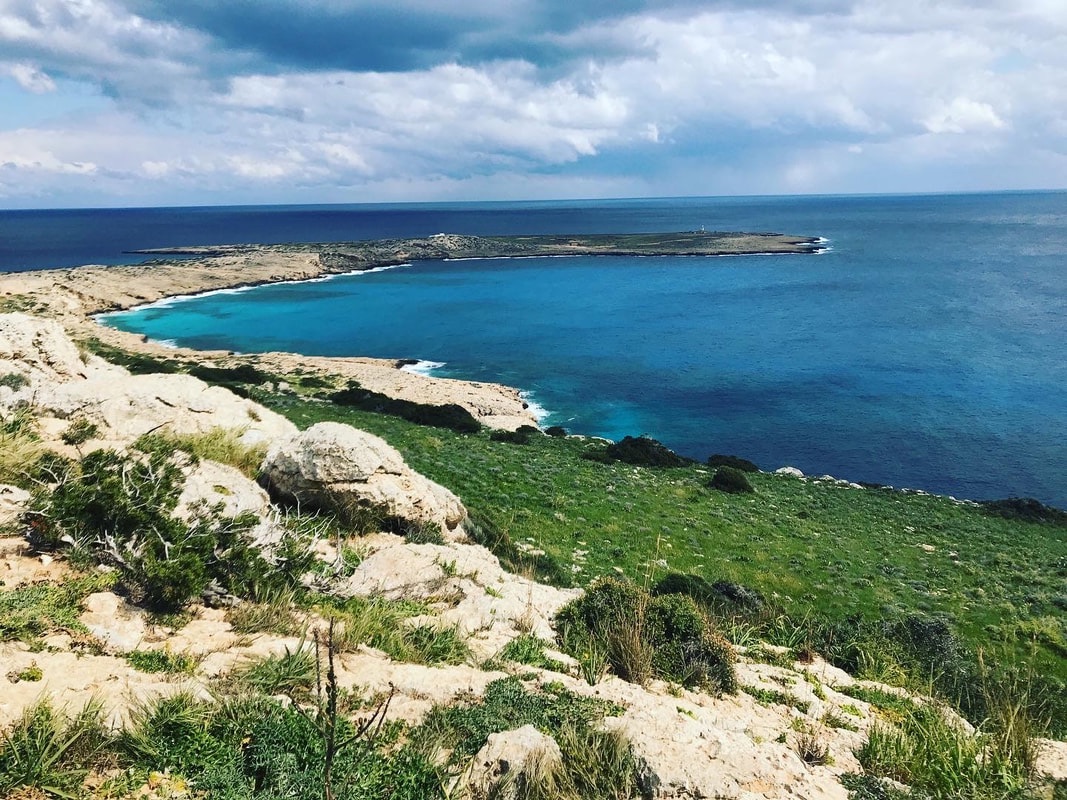
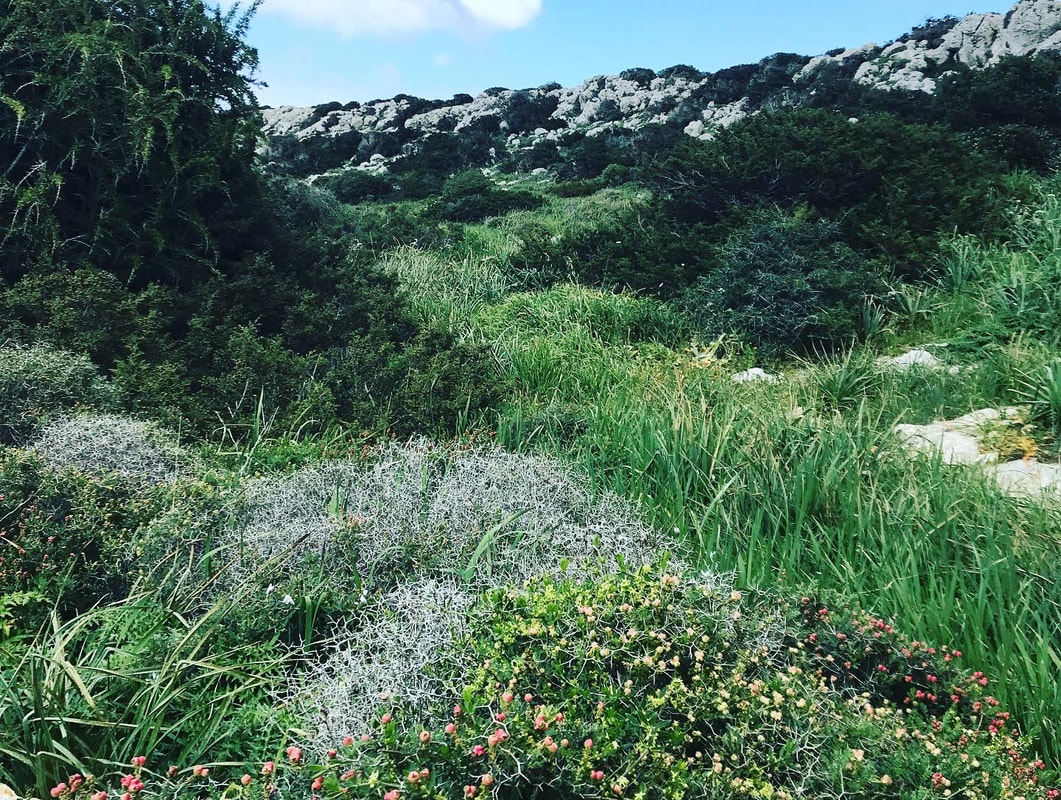
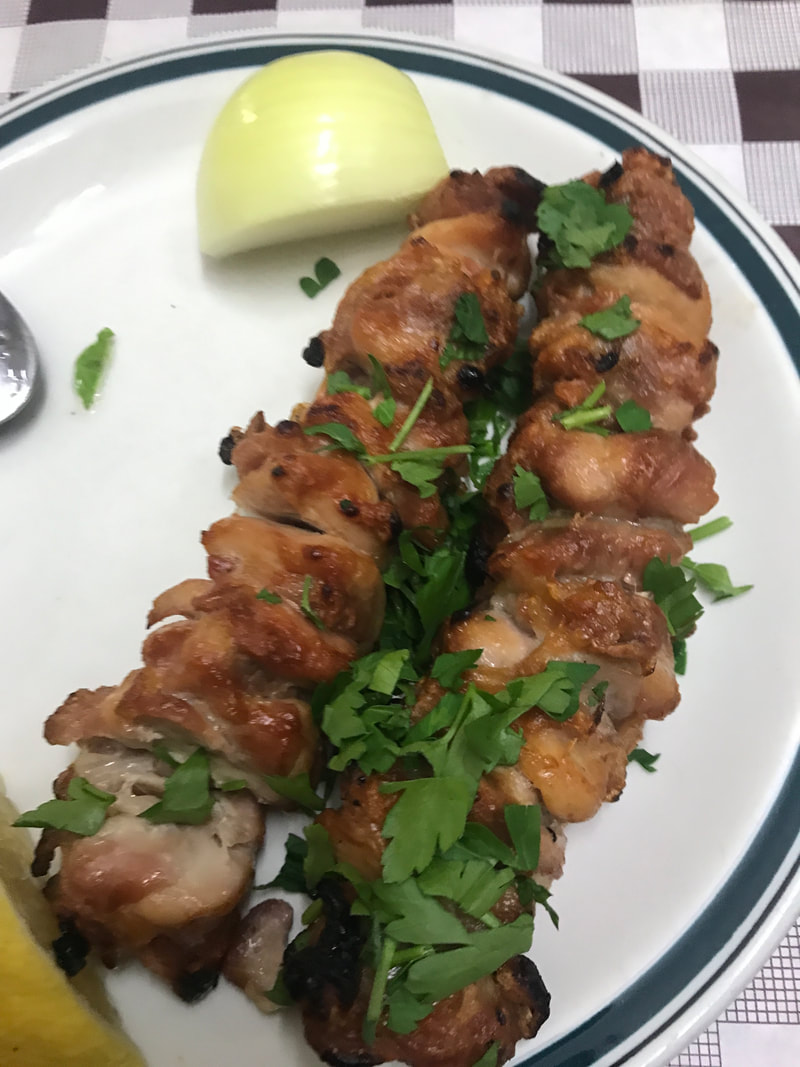
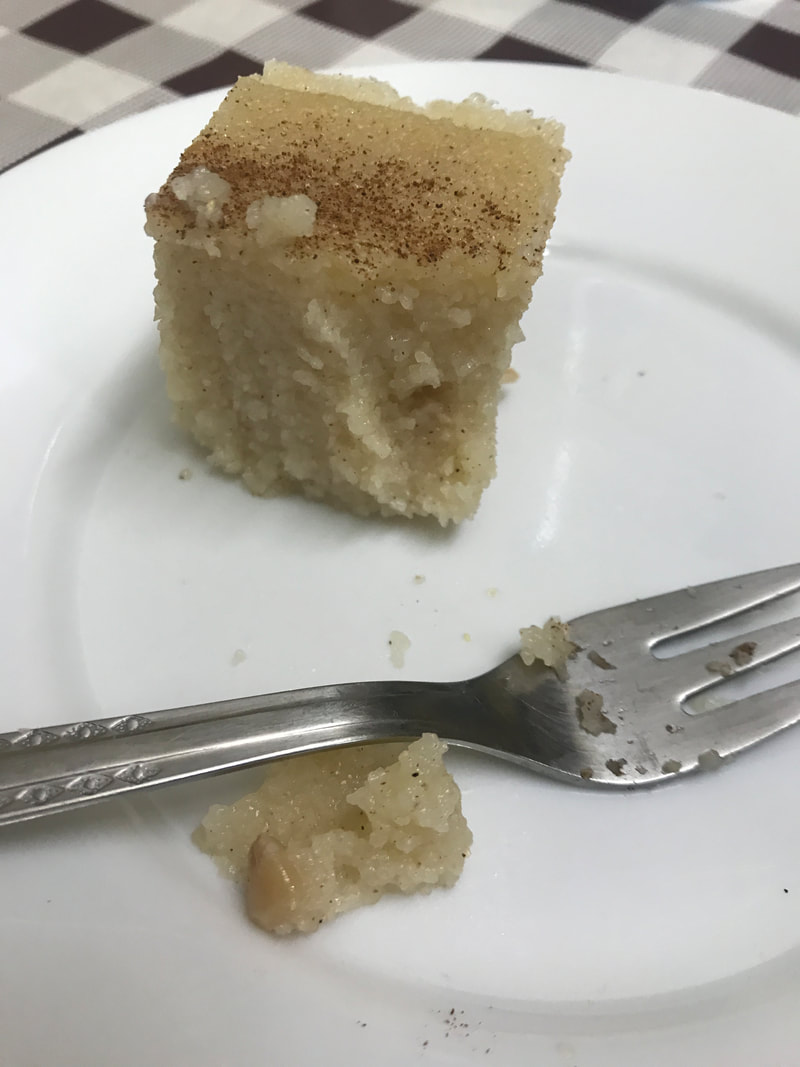
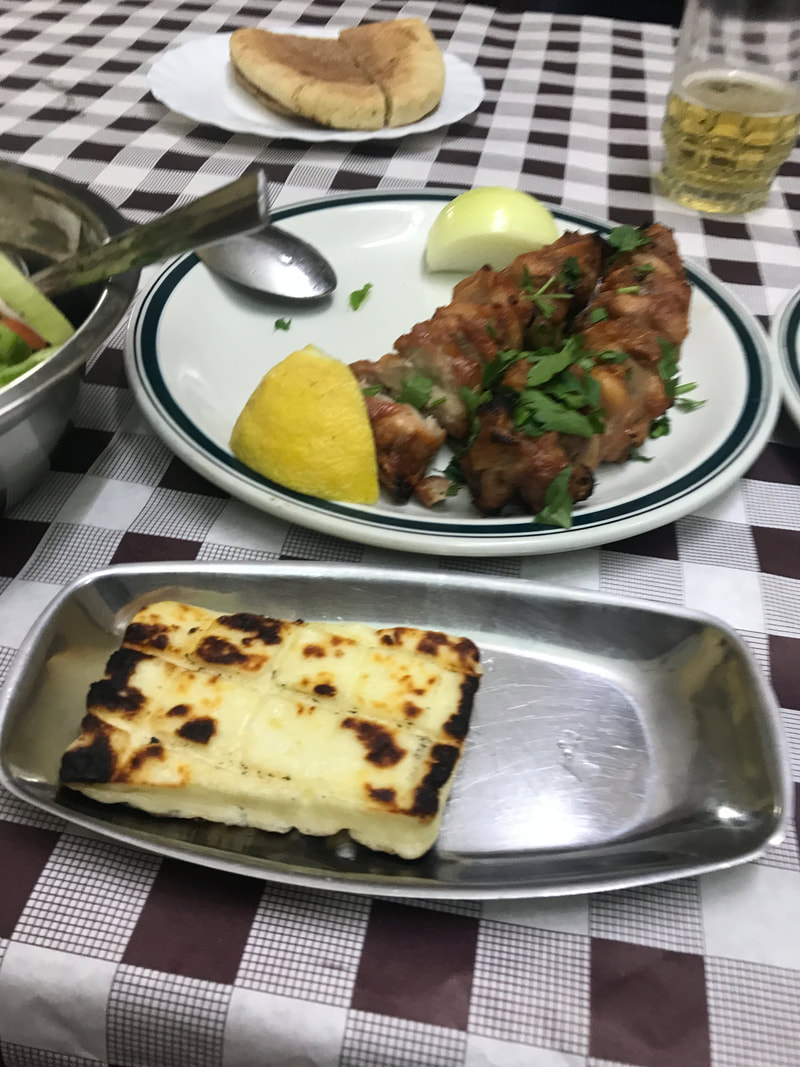
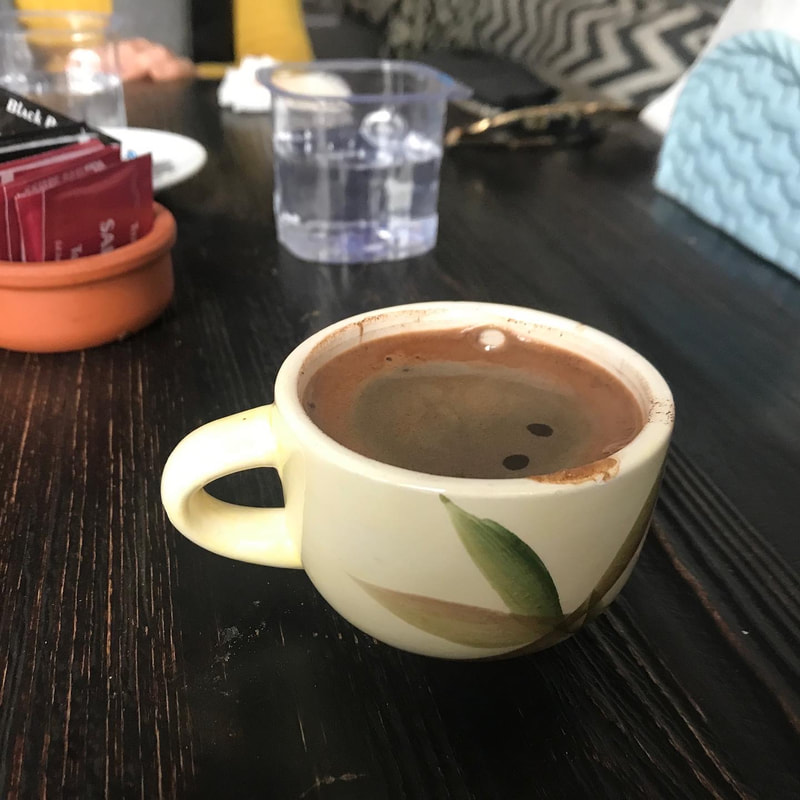
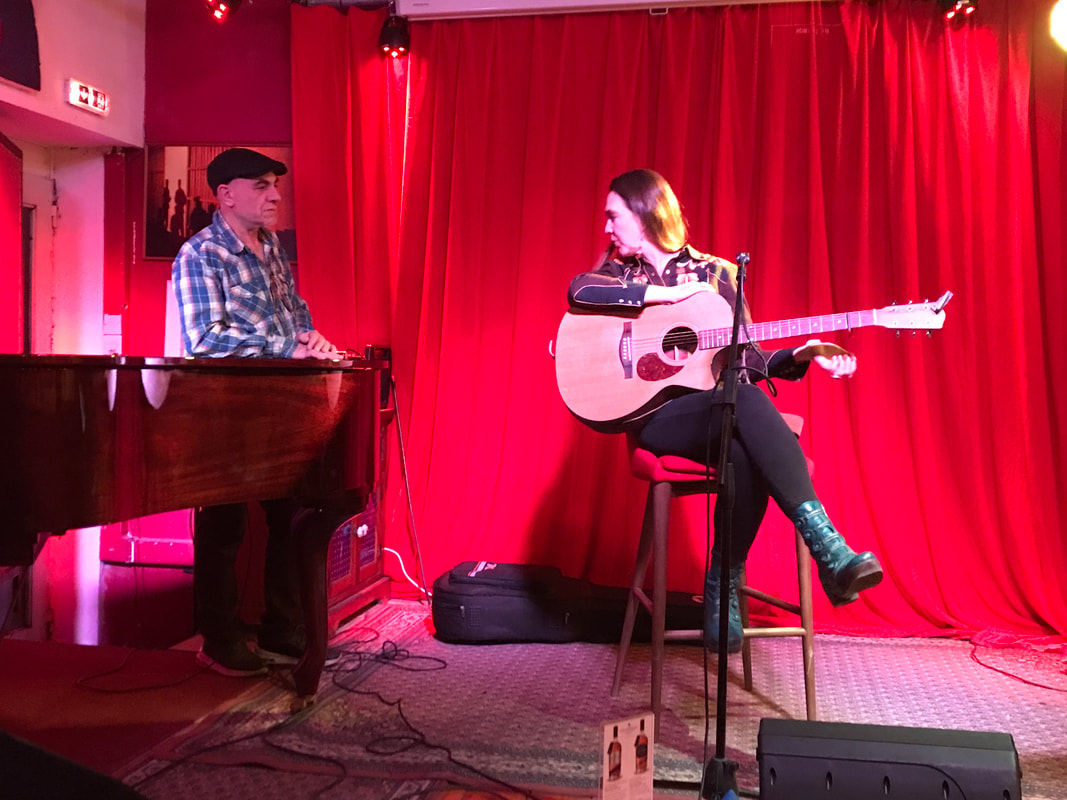
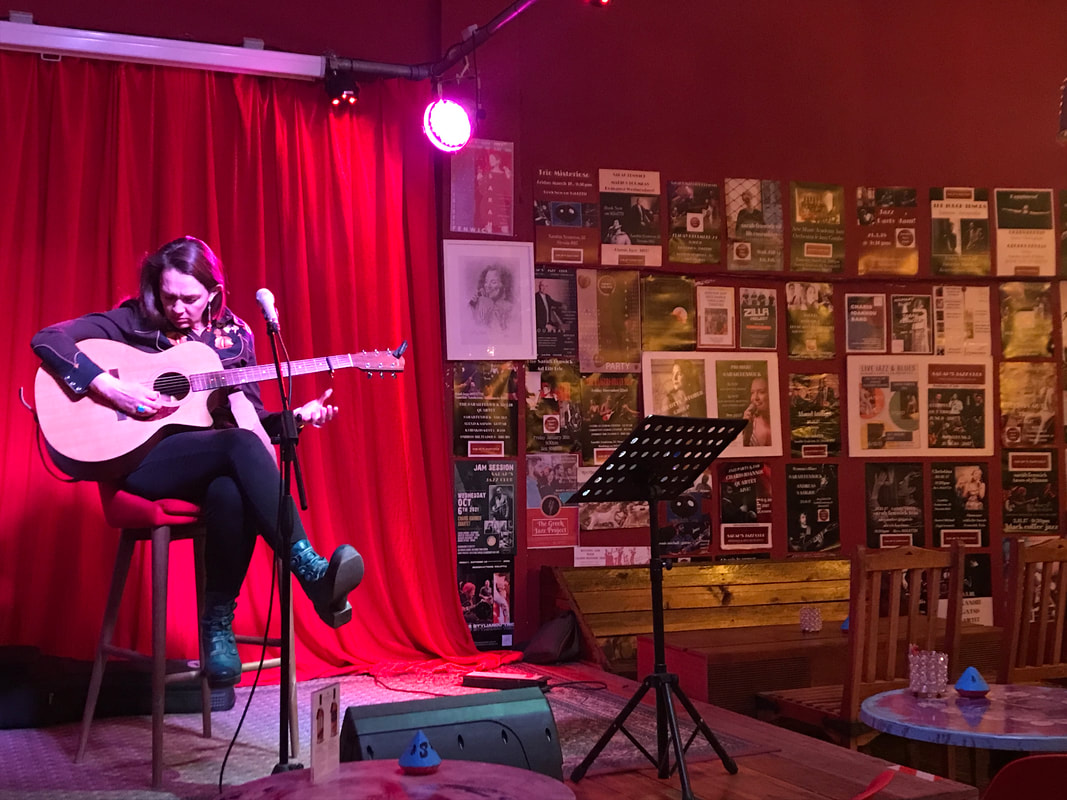
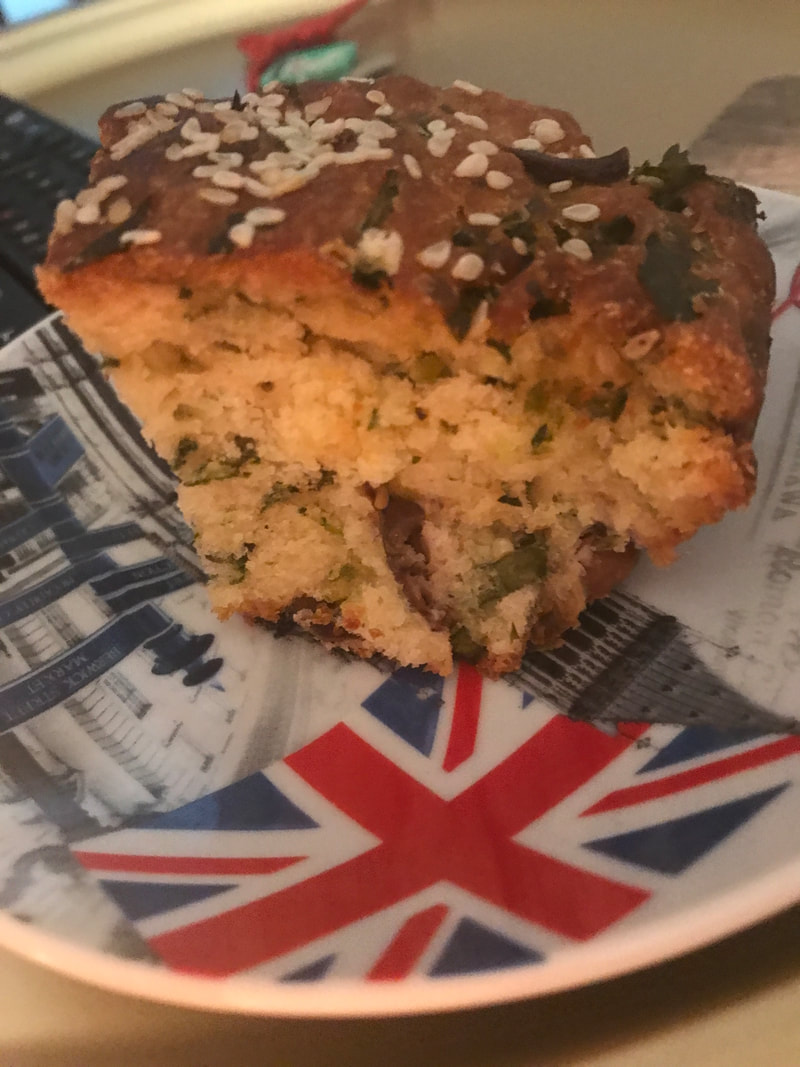
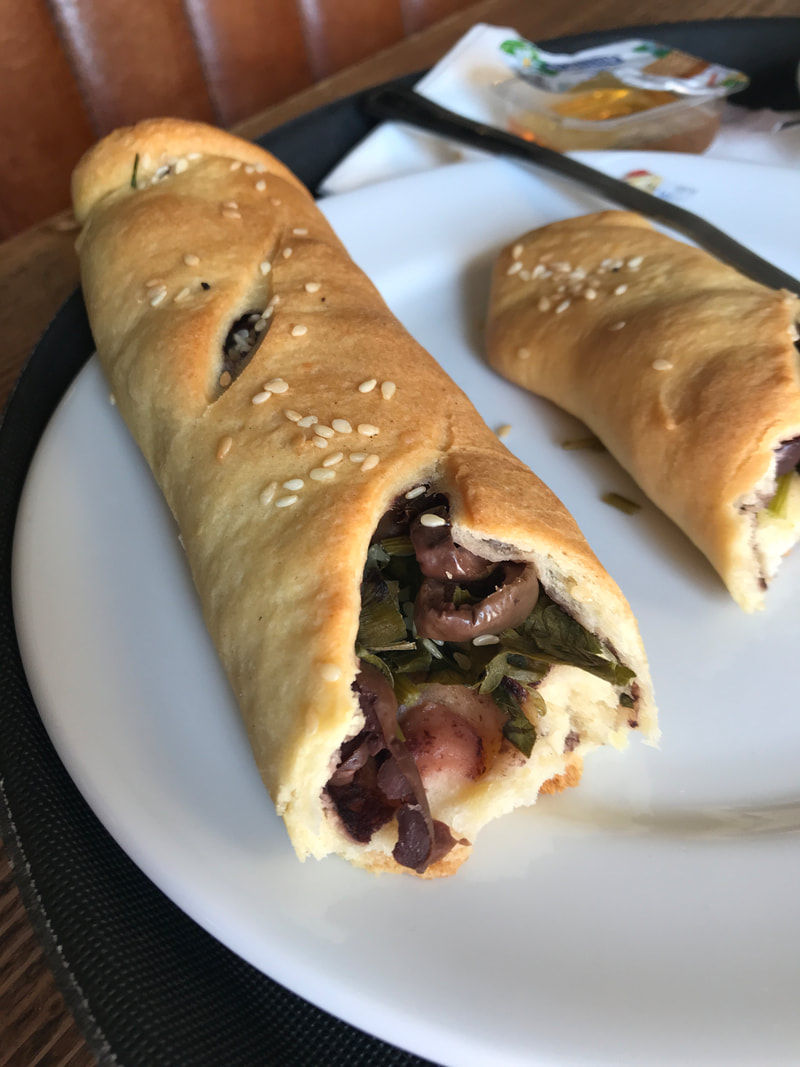
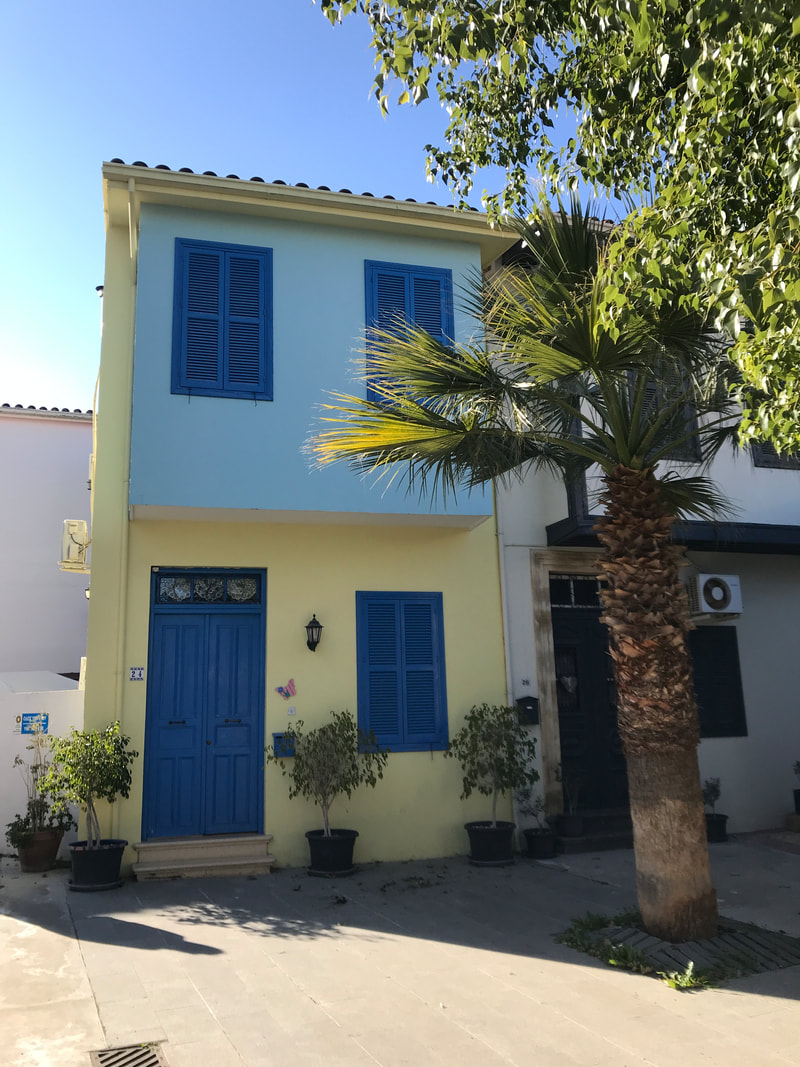
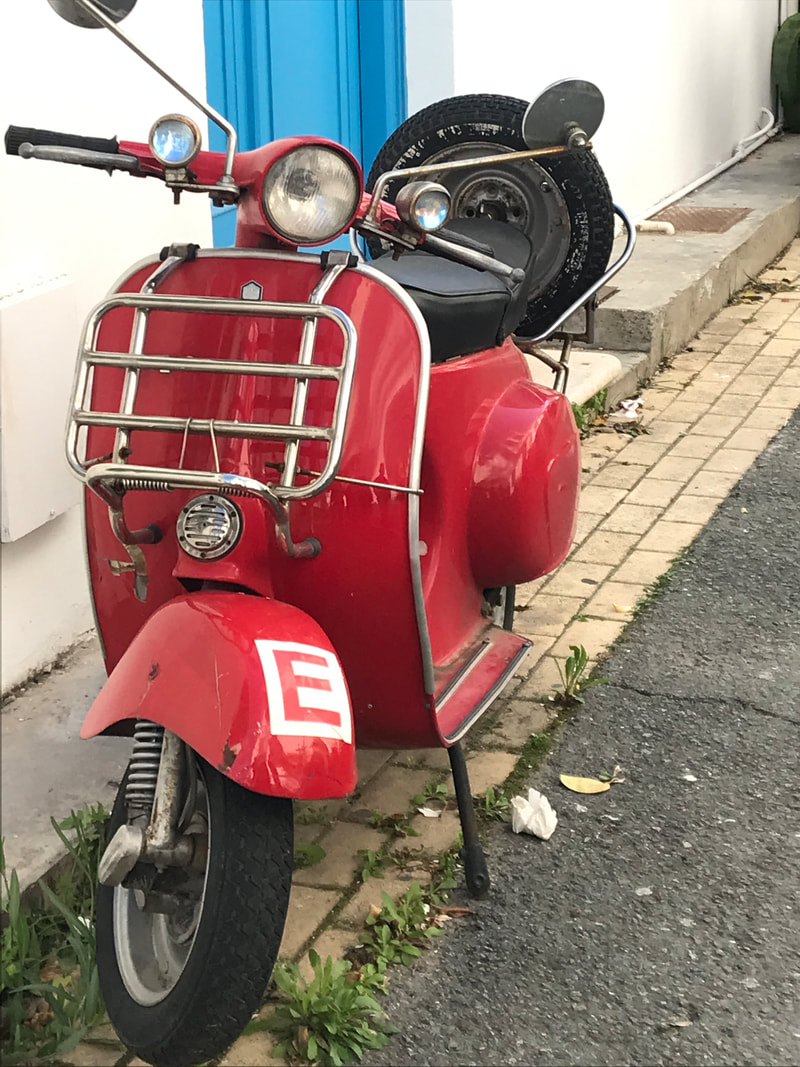
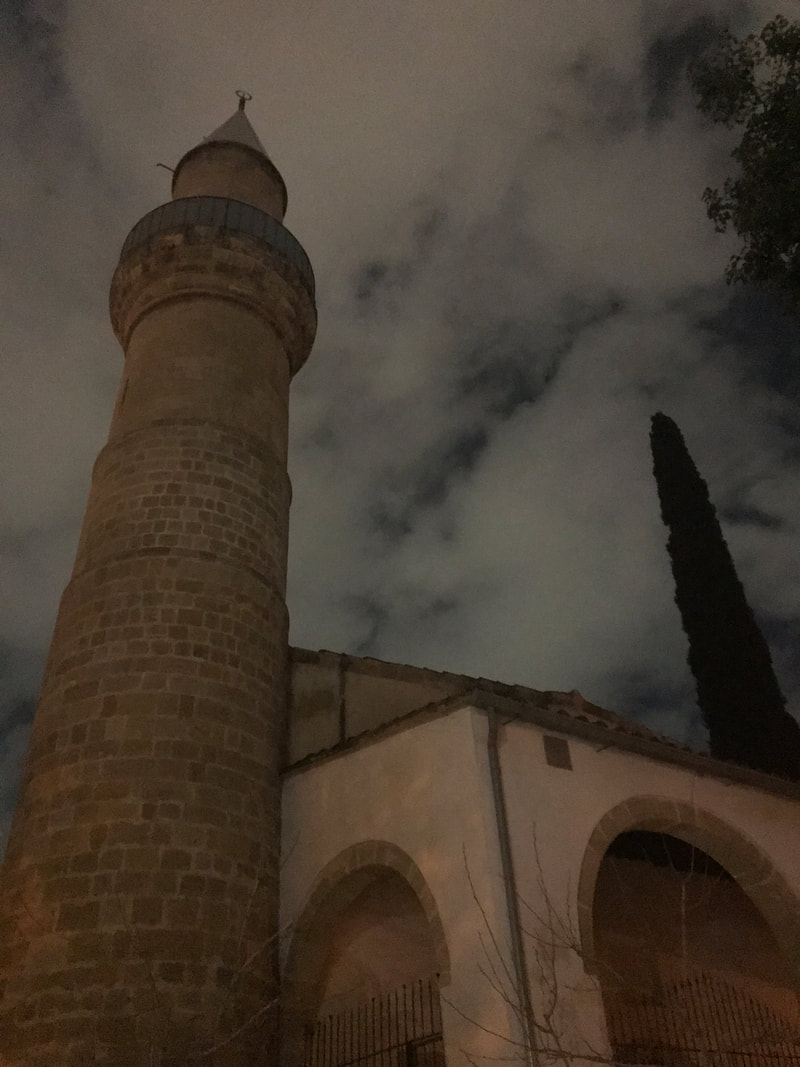
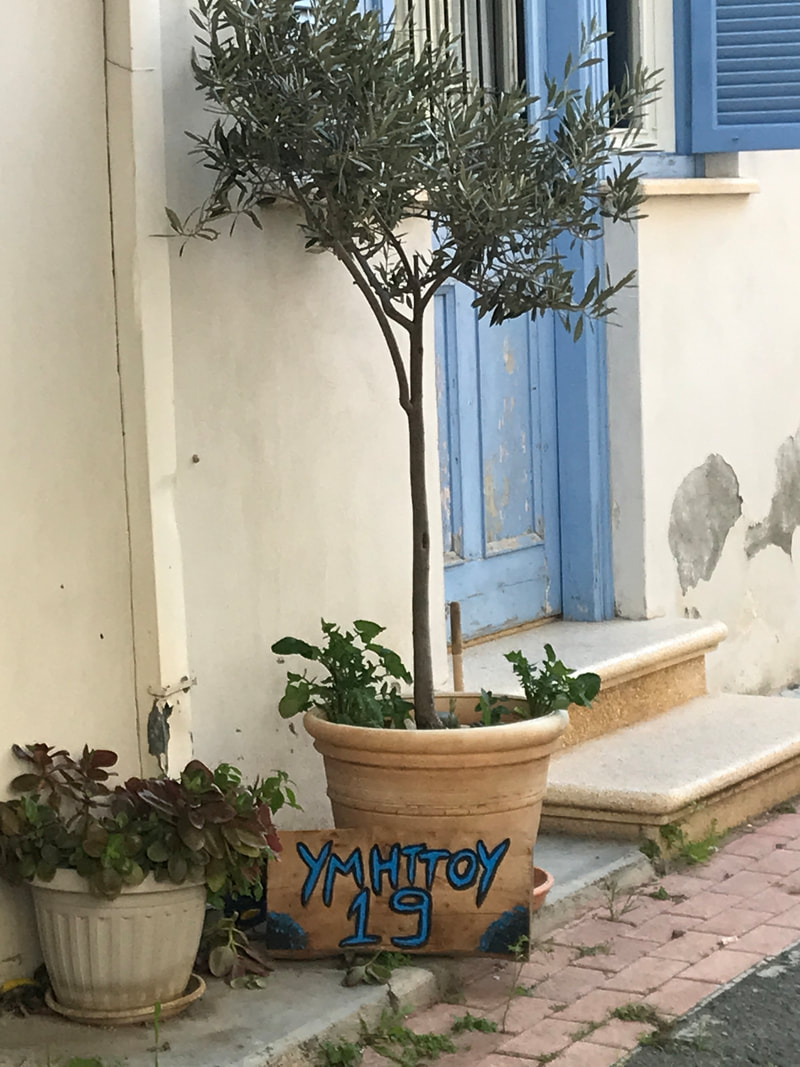
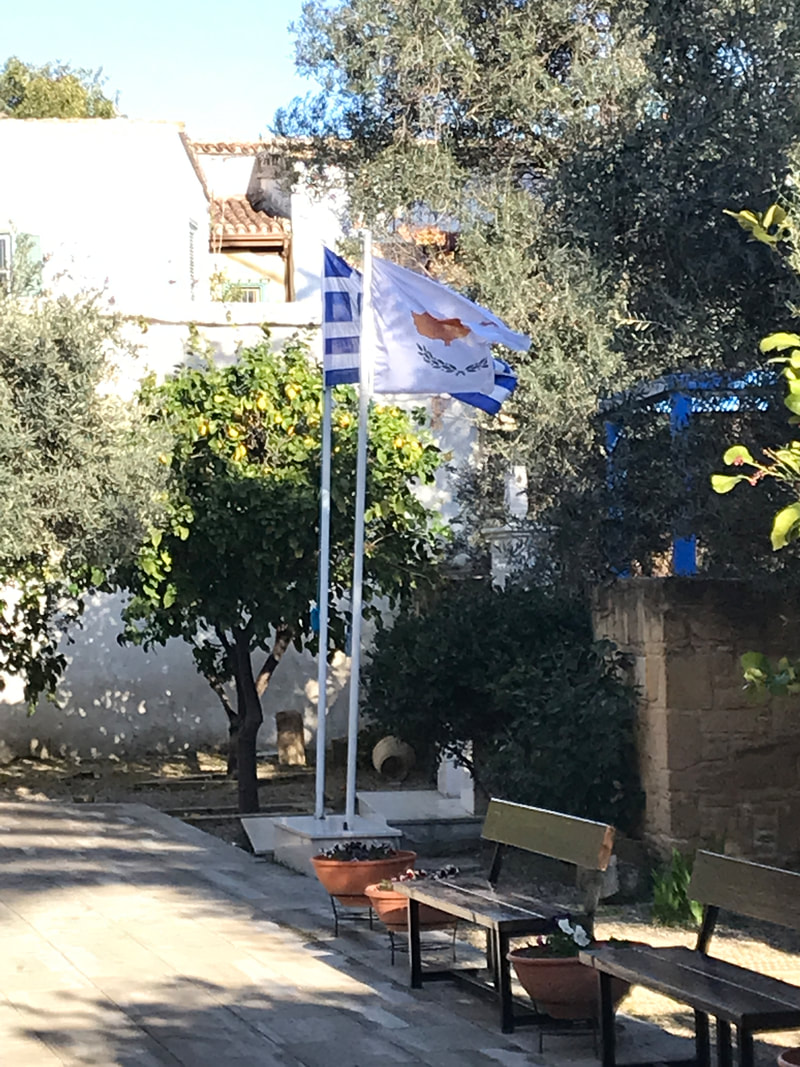
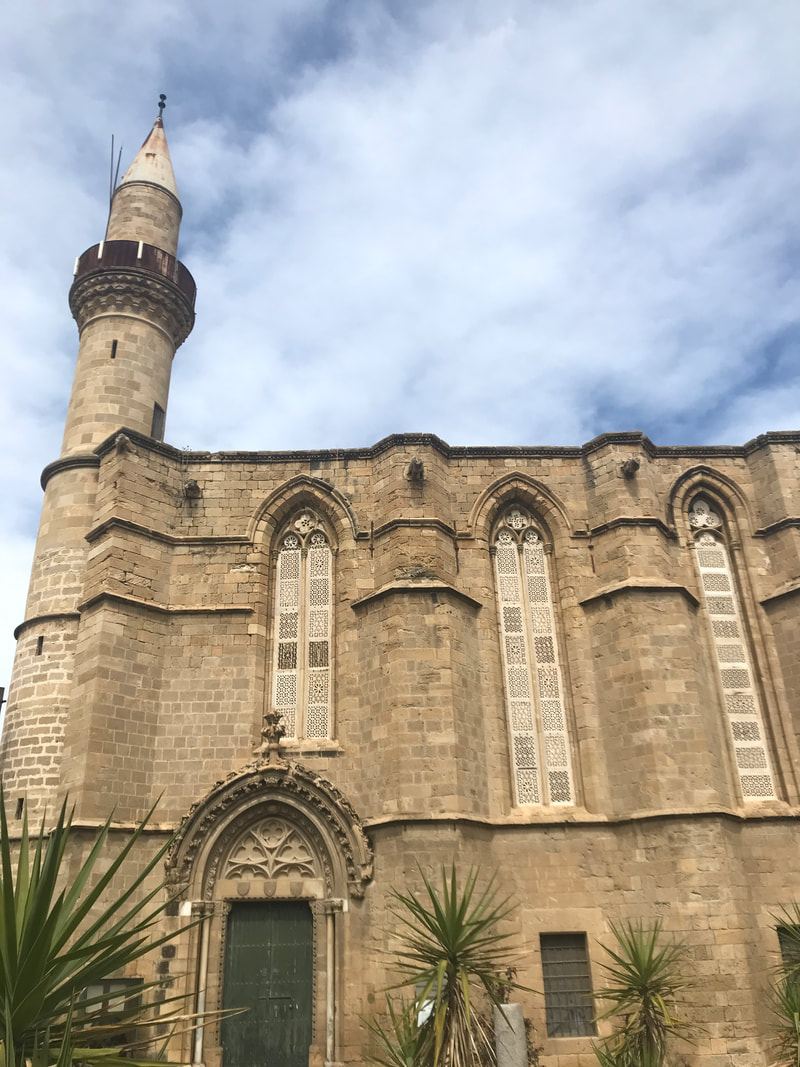
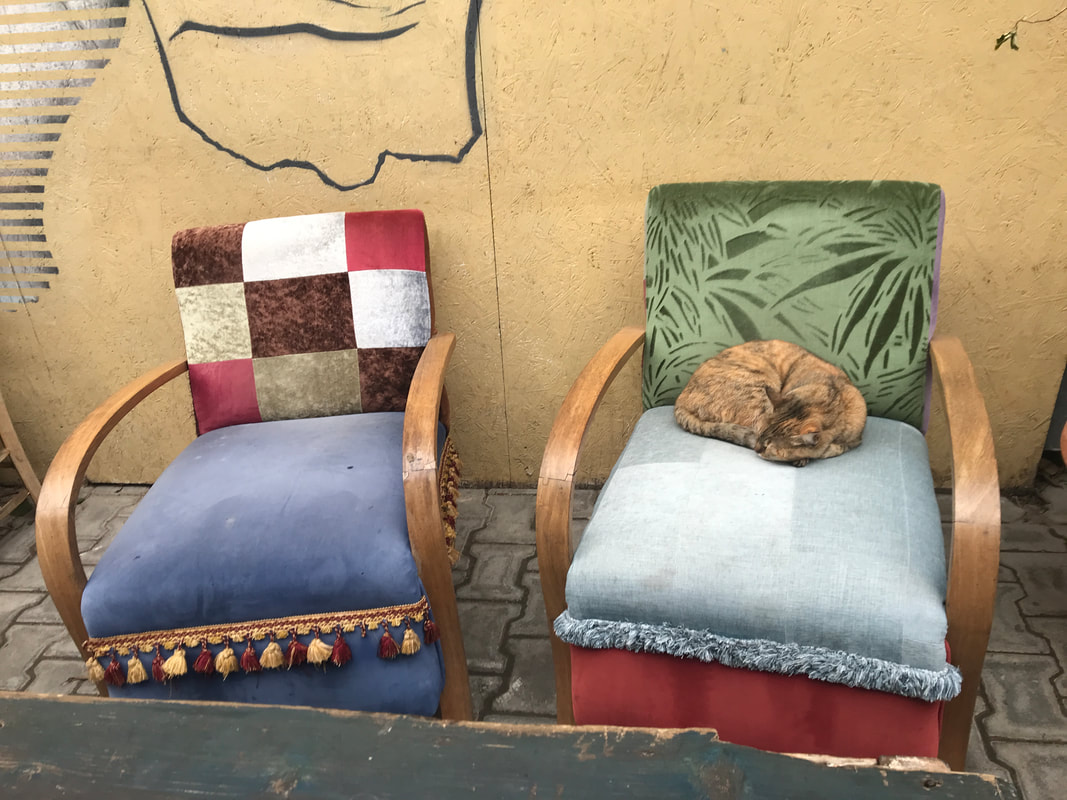
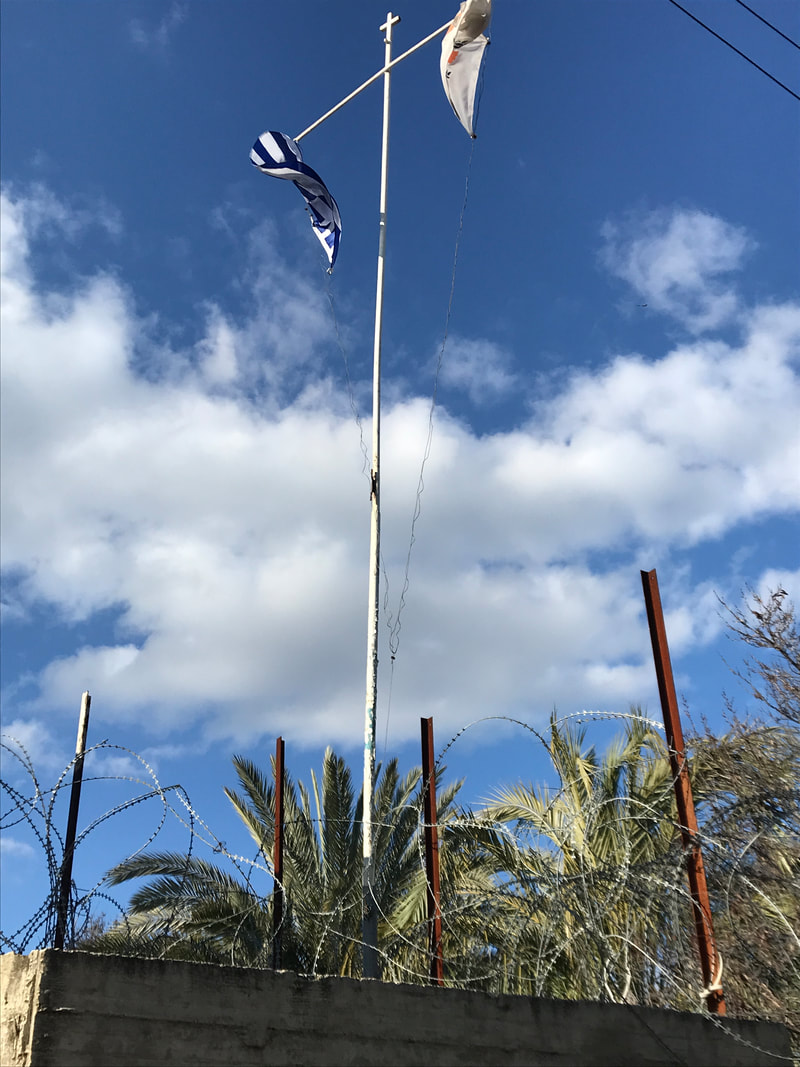
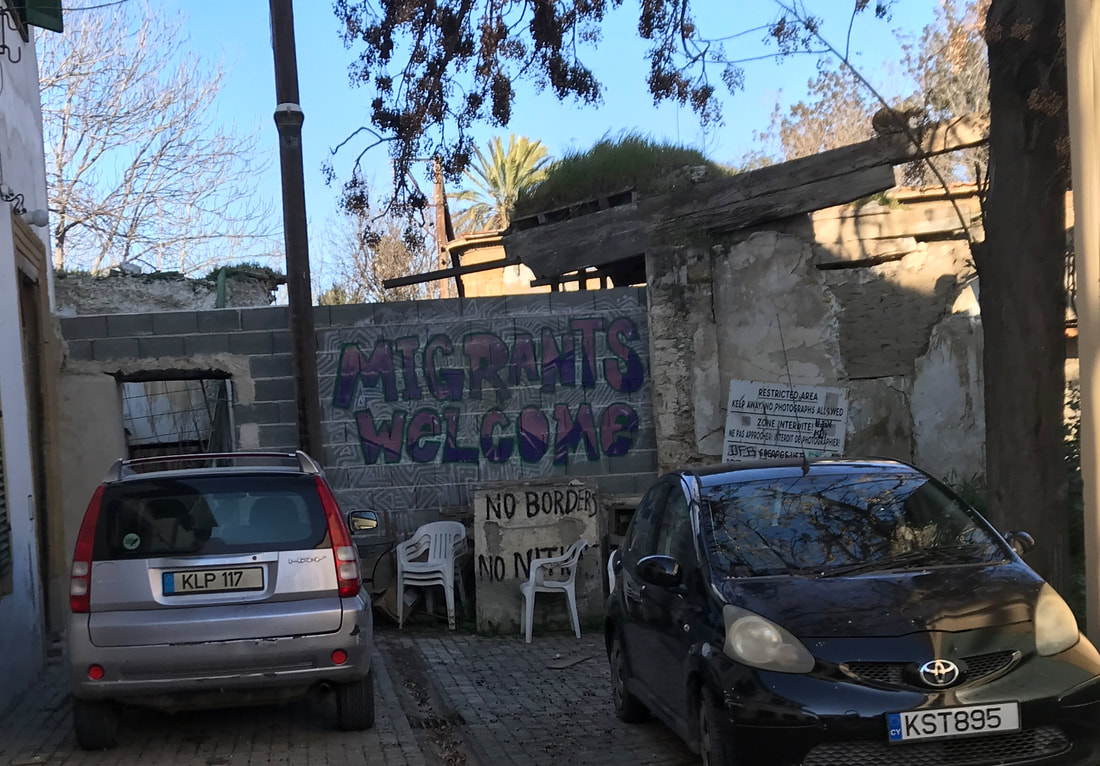
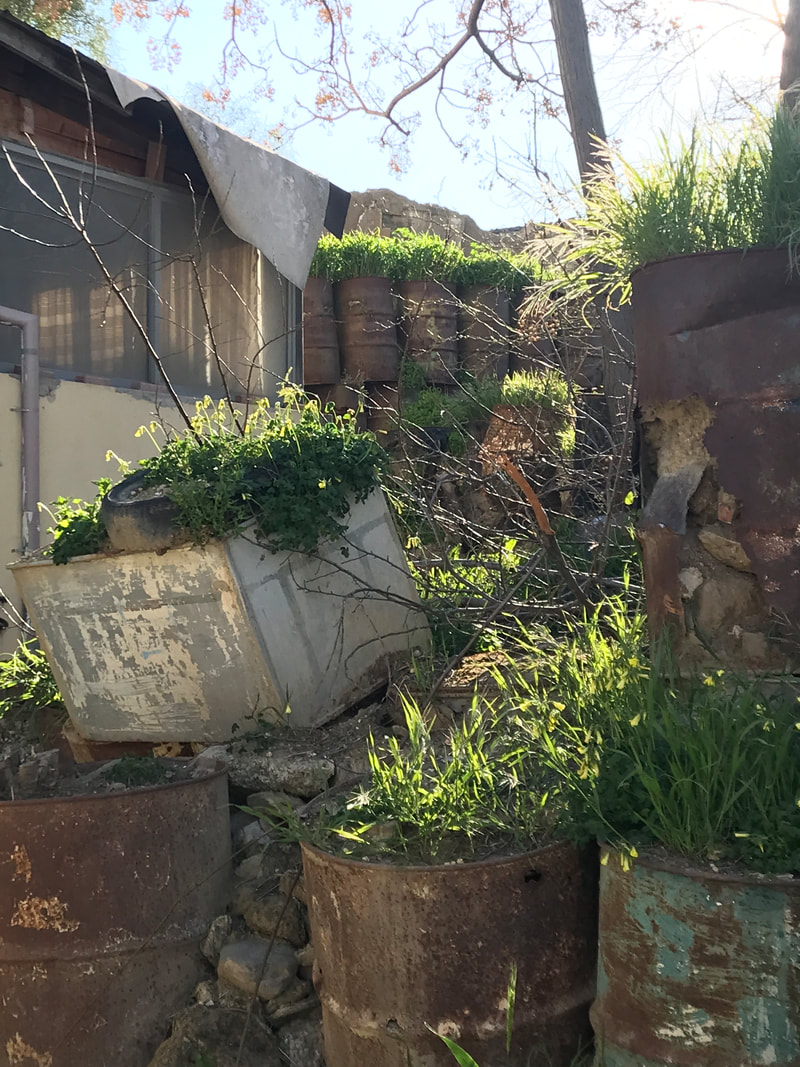
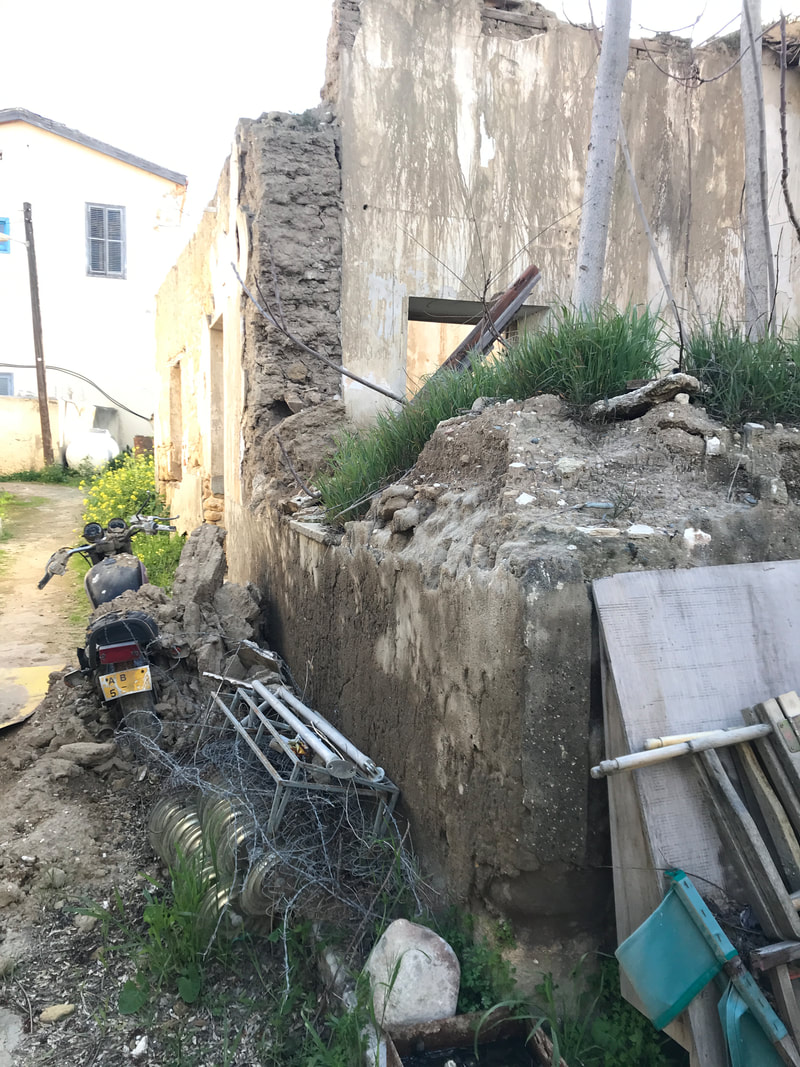
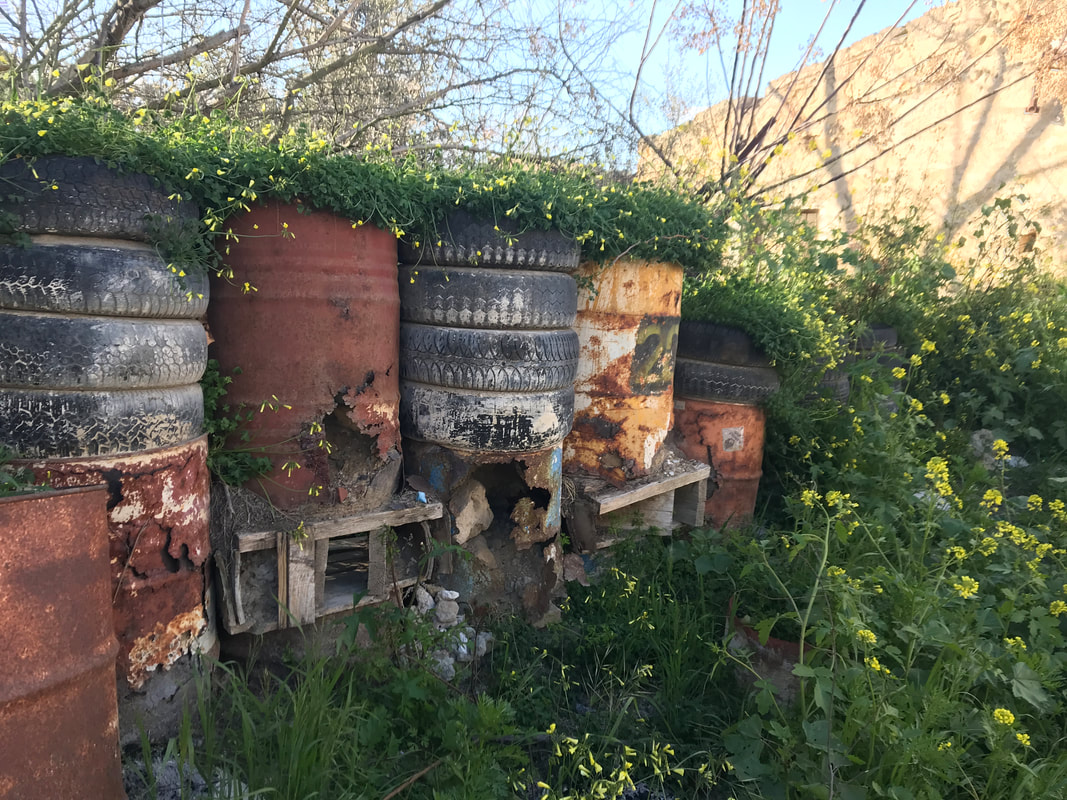
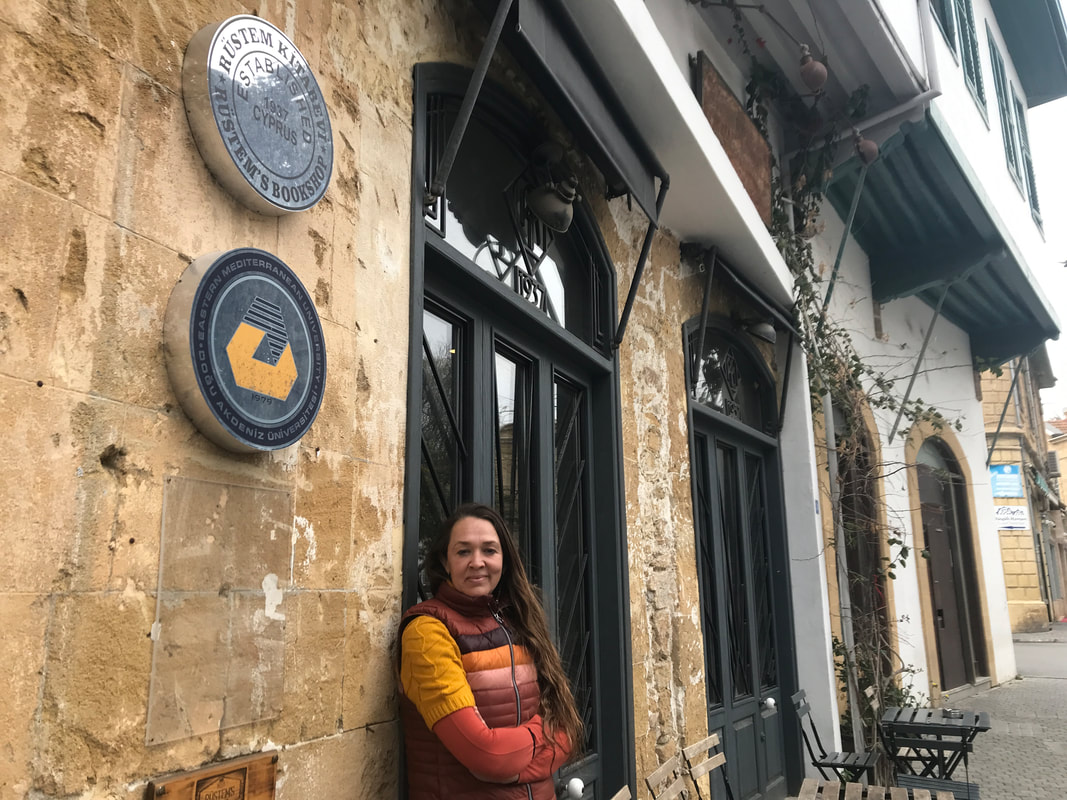
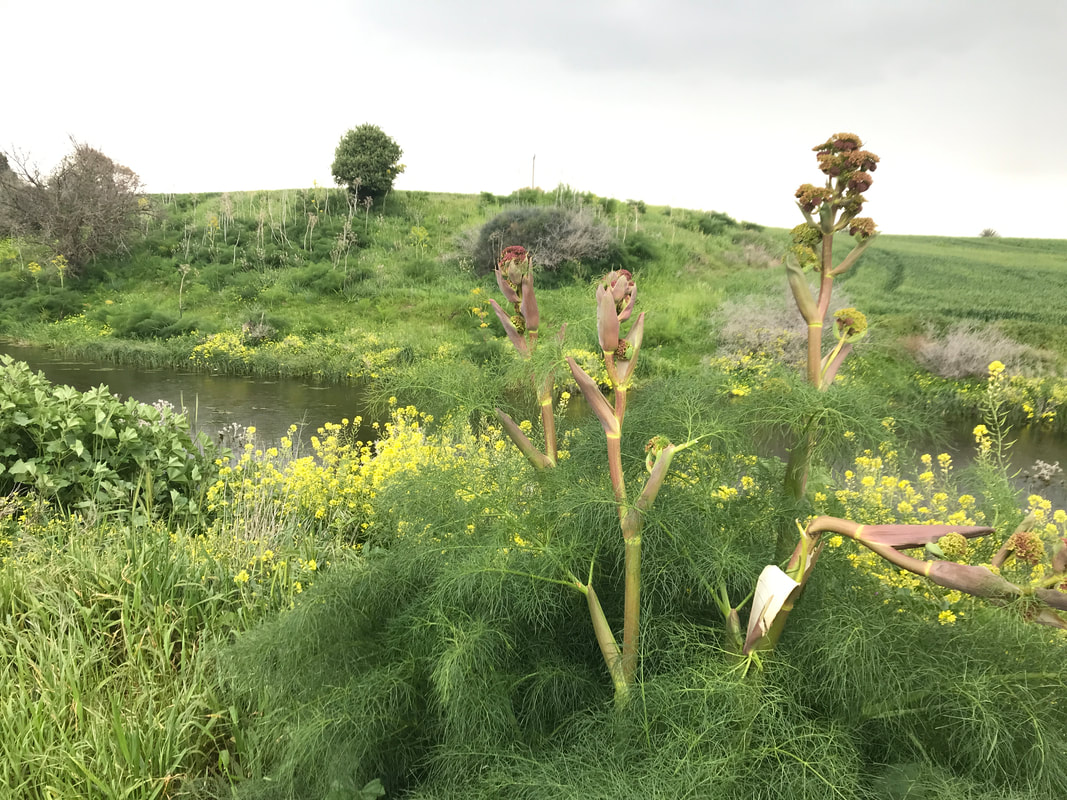
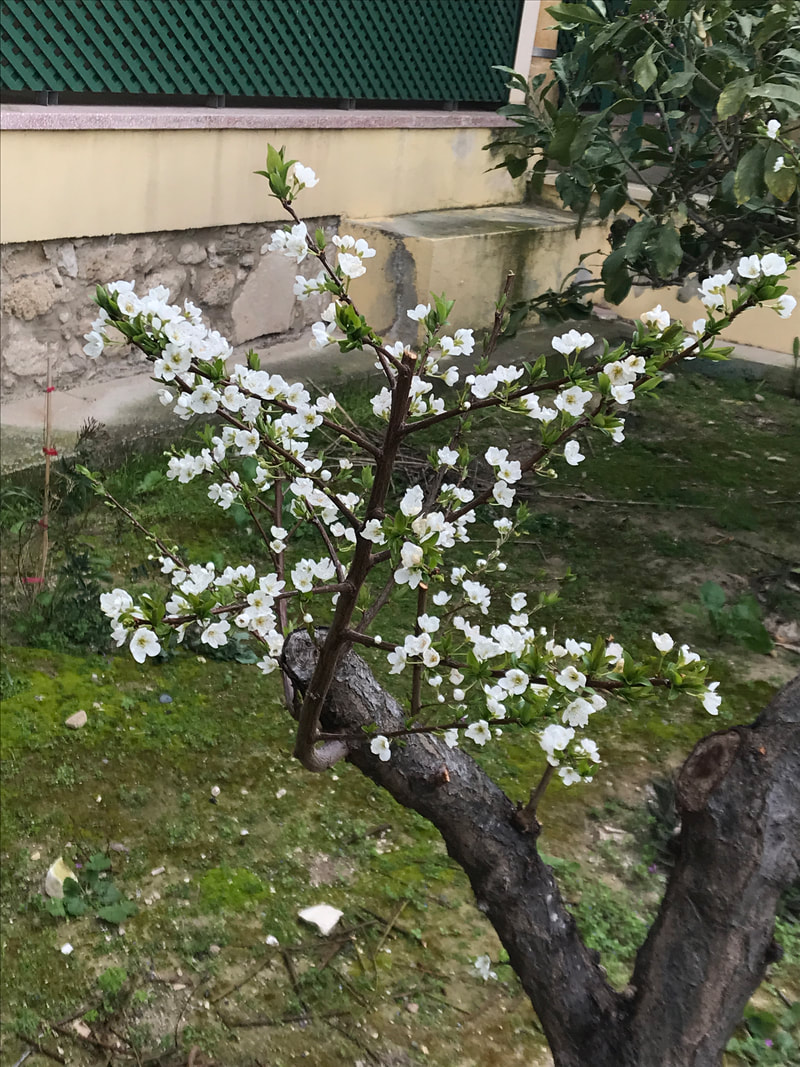
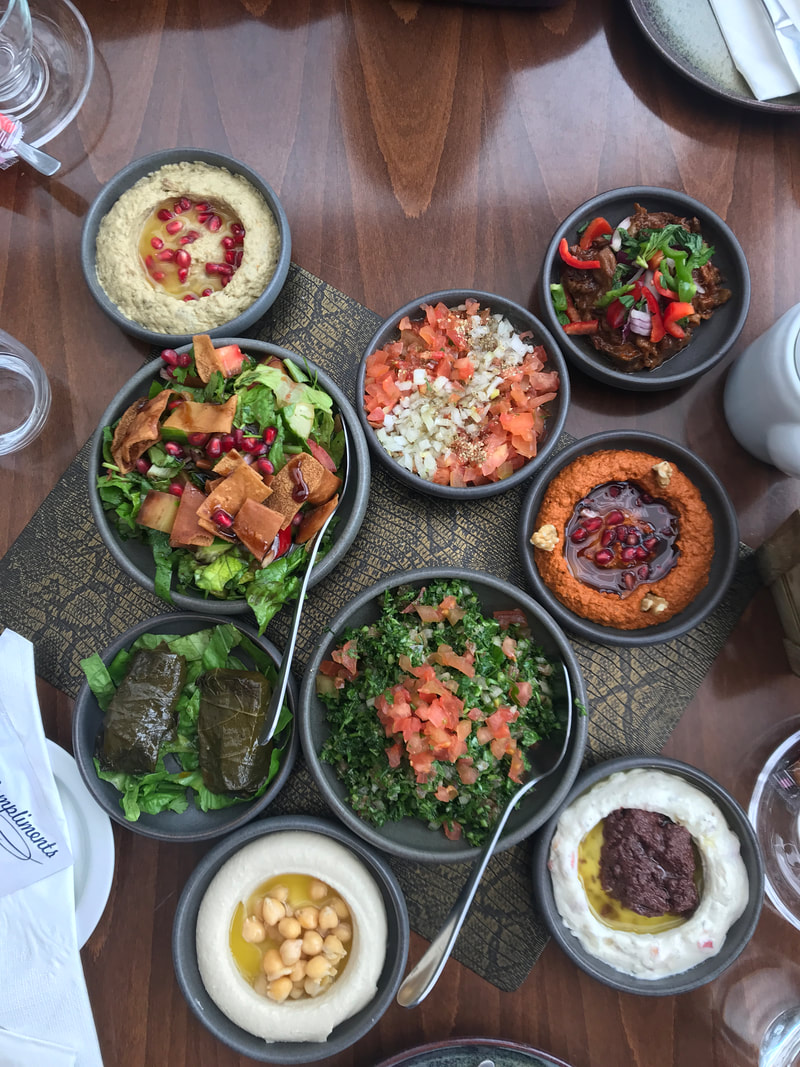
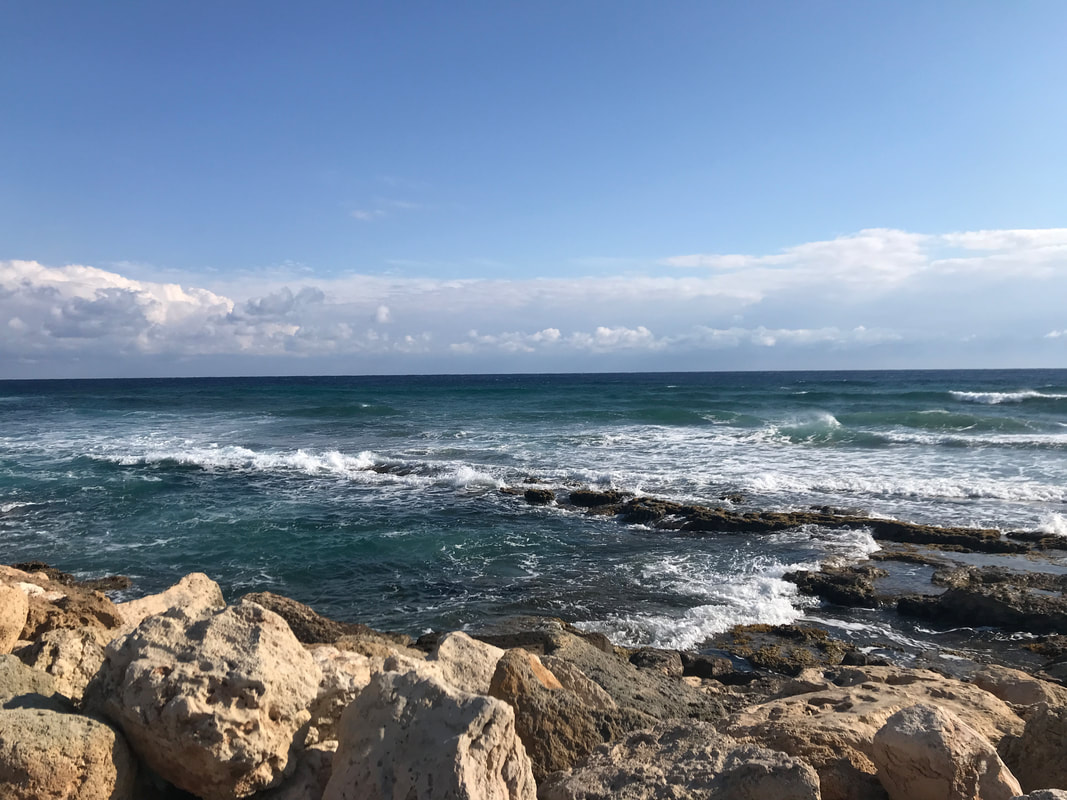
 RSS Feed
RSS Feed
